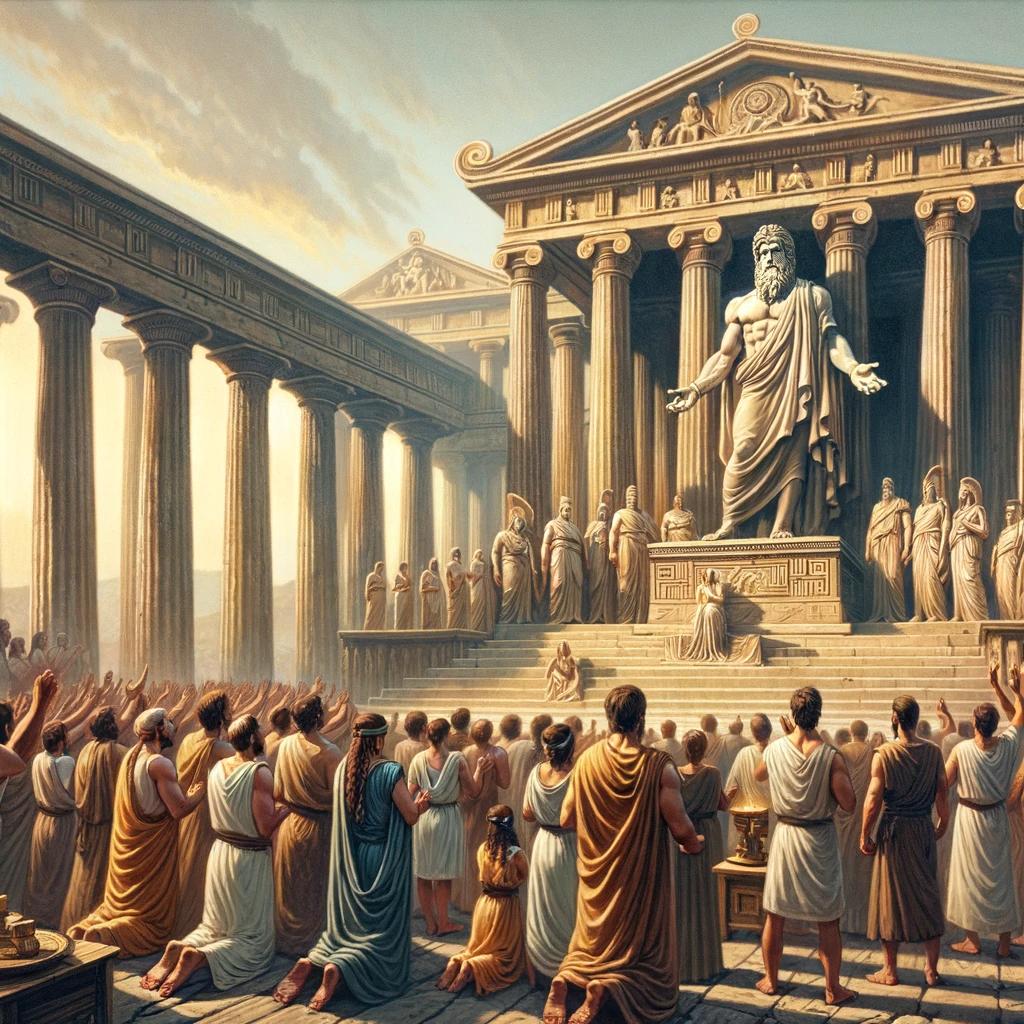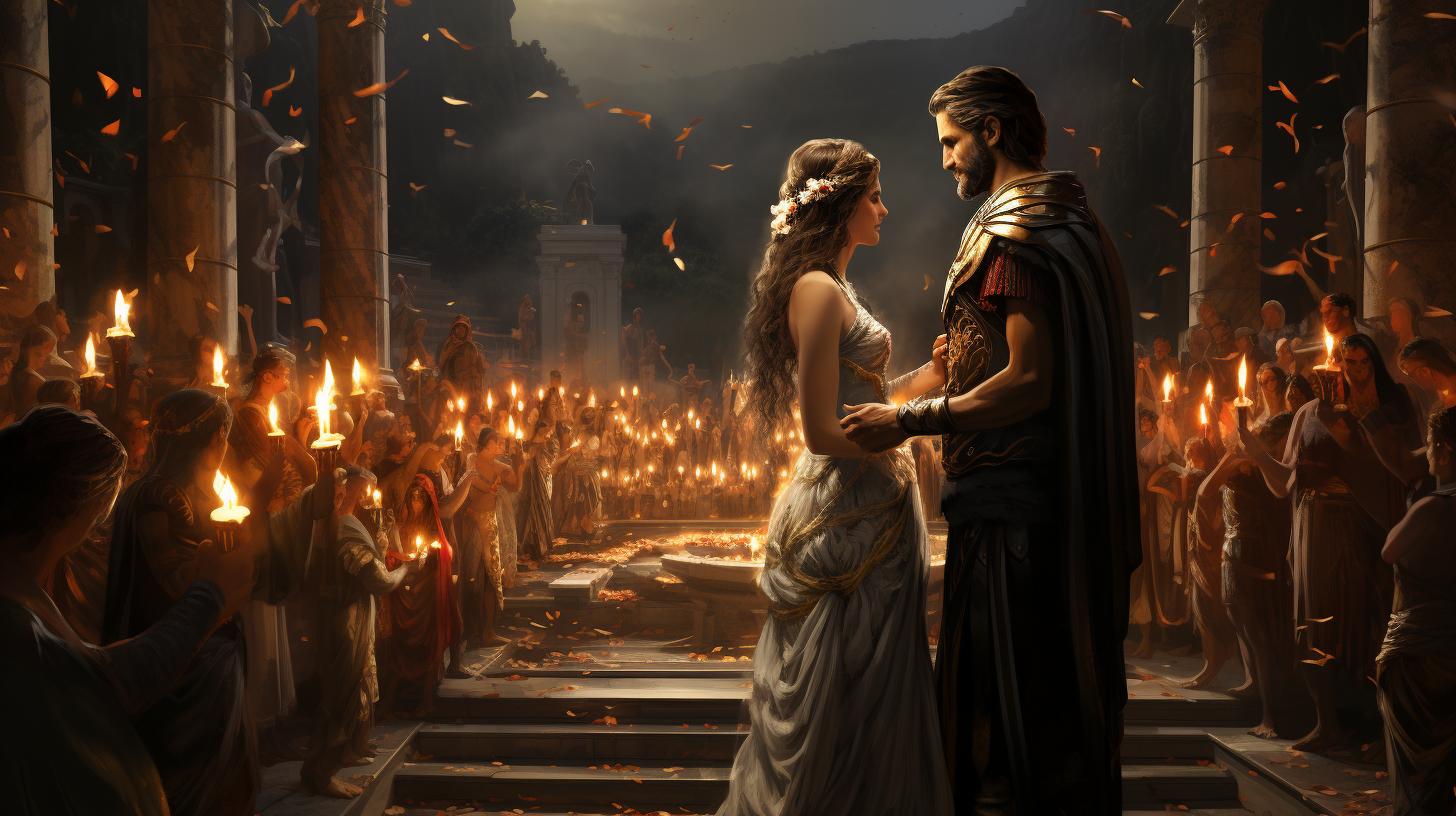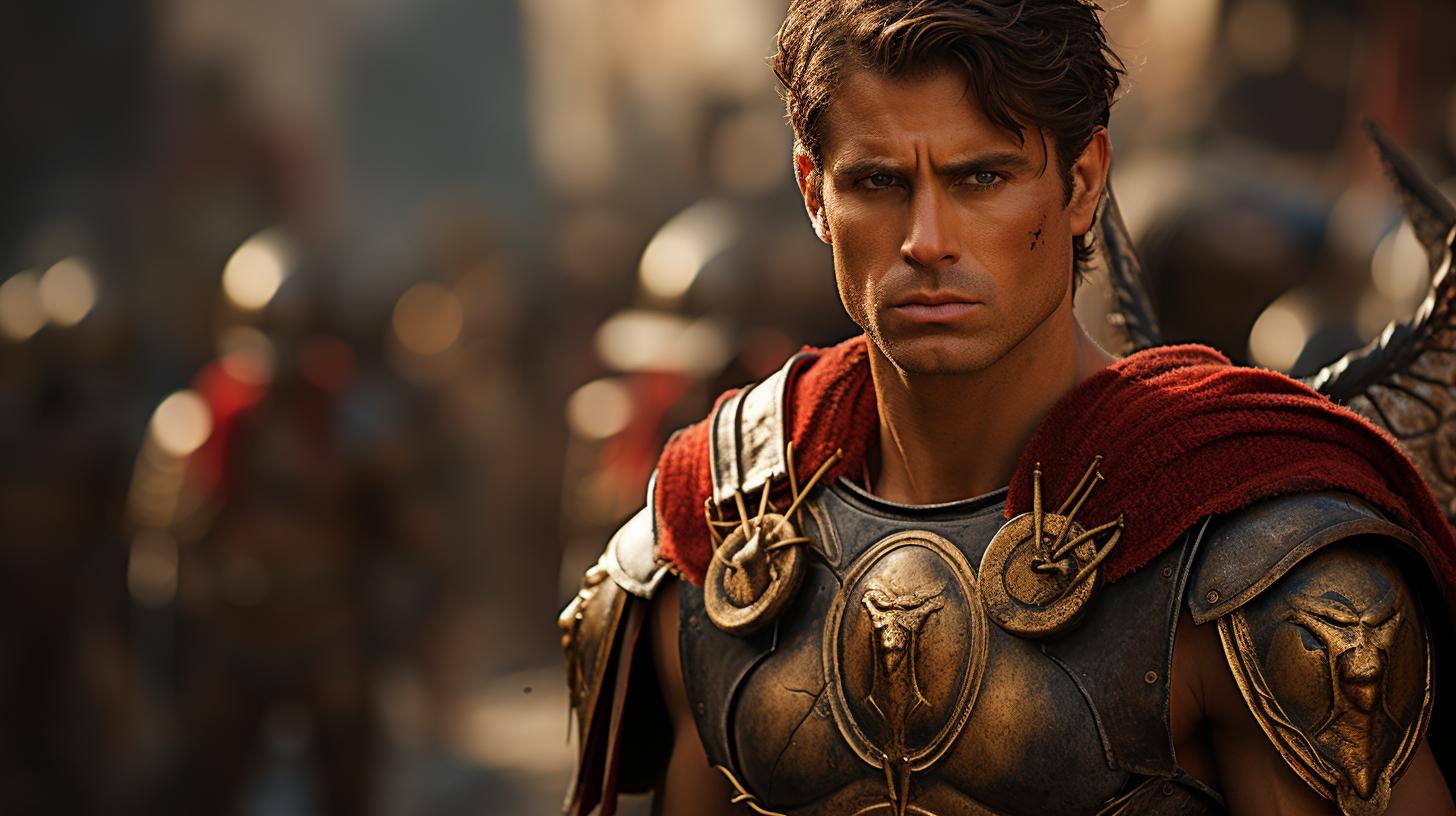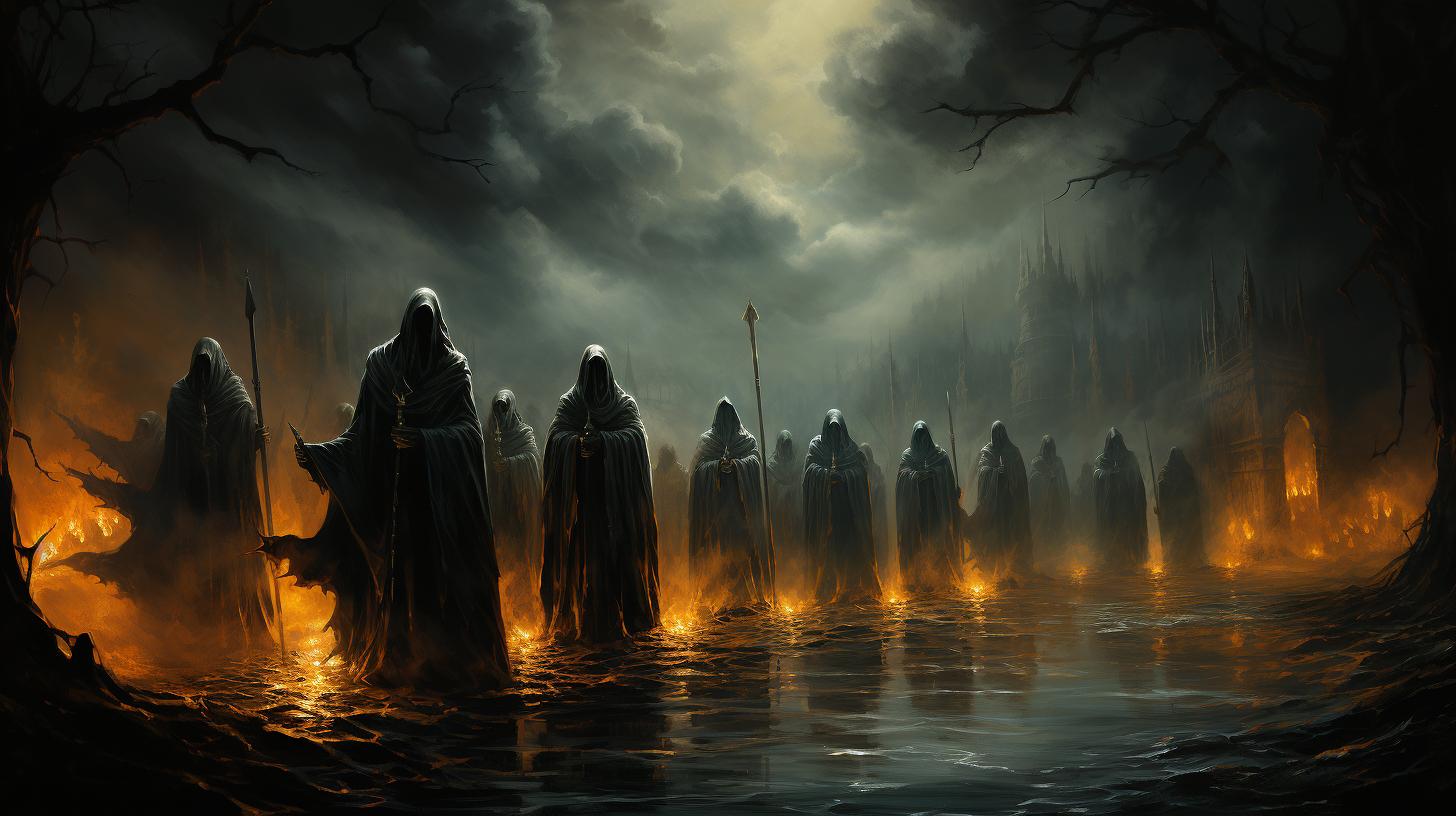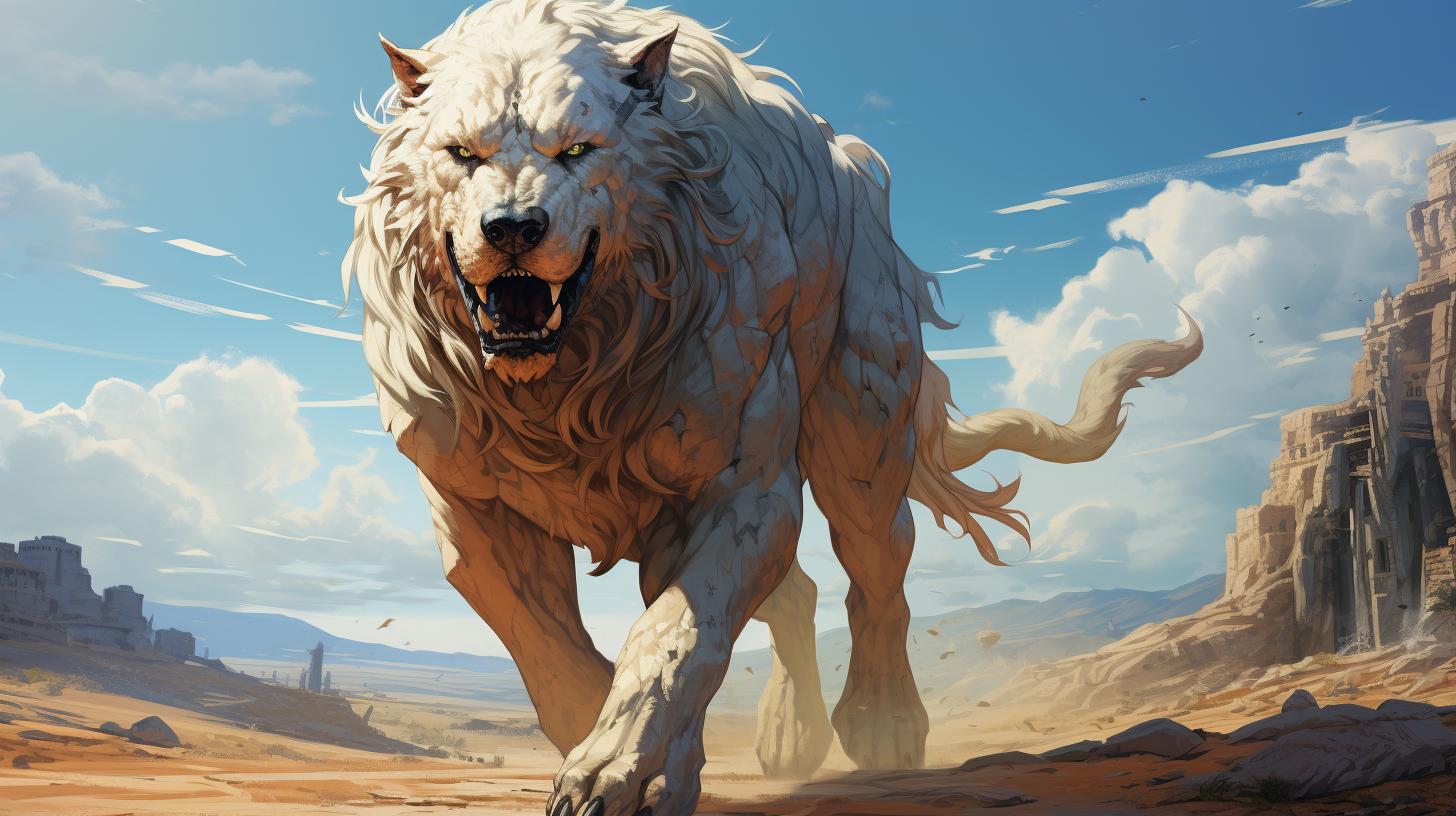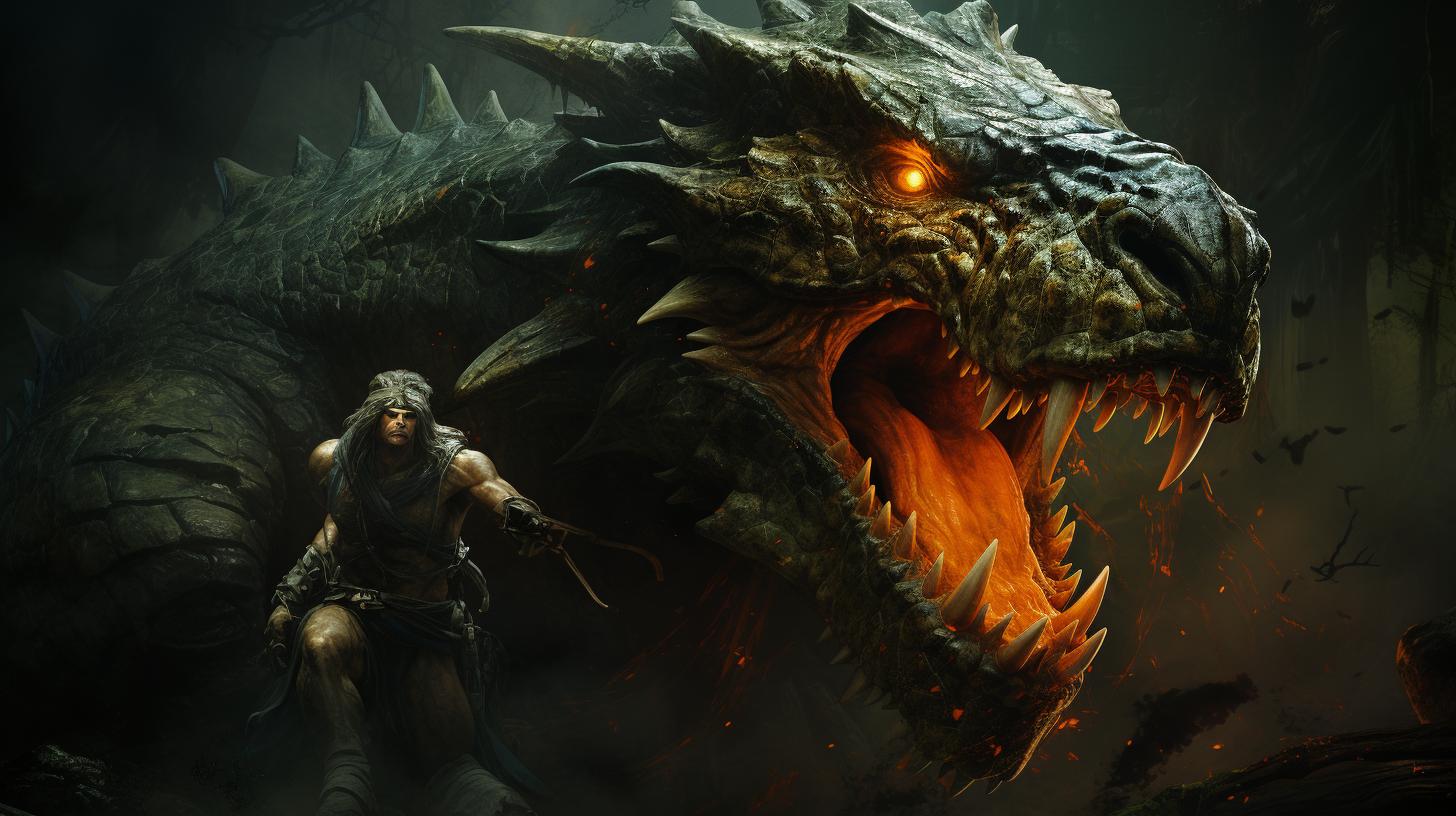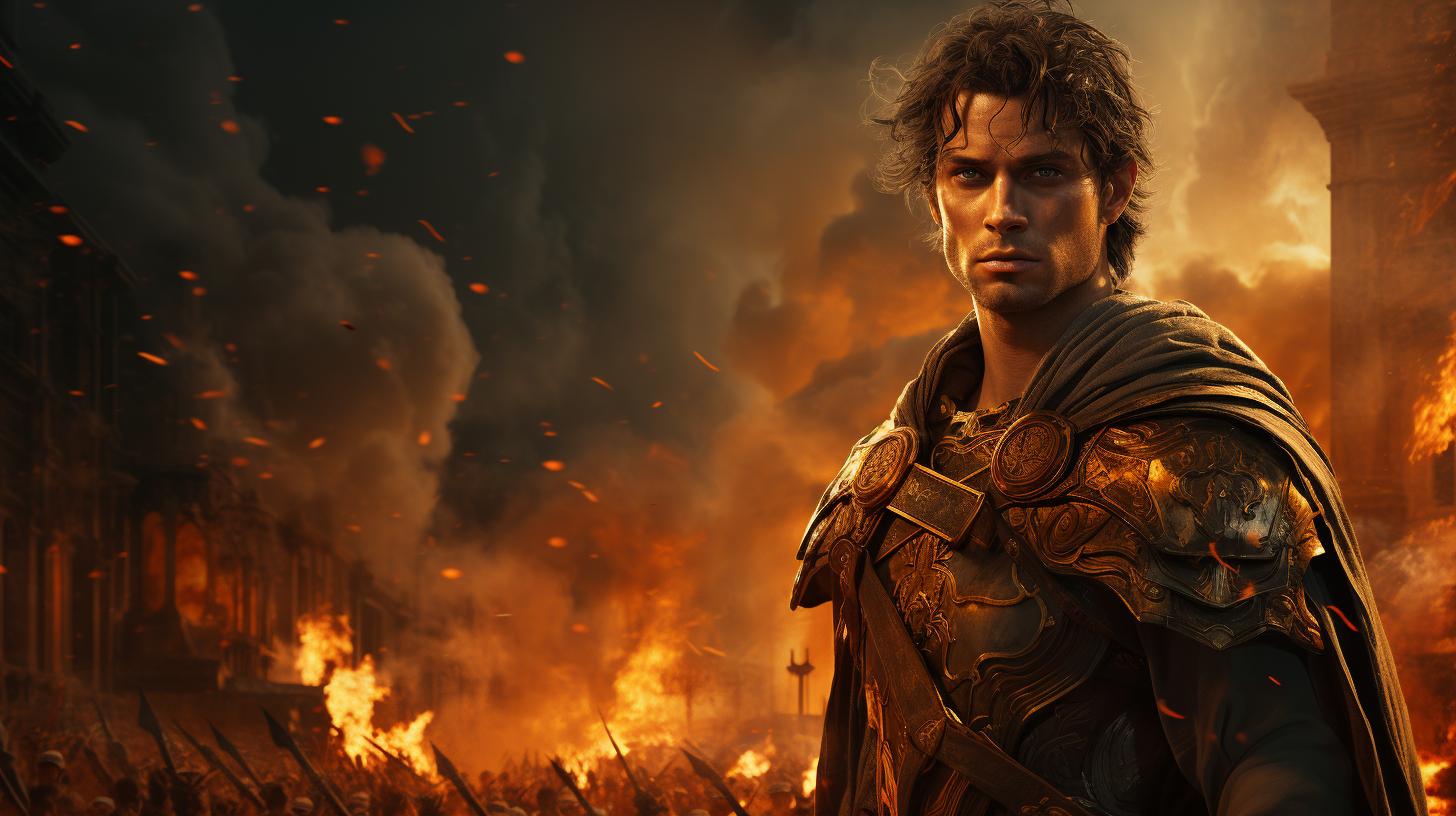Are Greek Mythology Gods Real? The Truth Unveiled
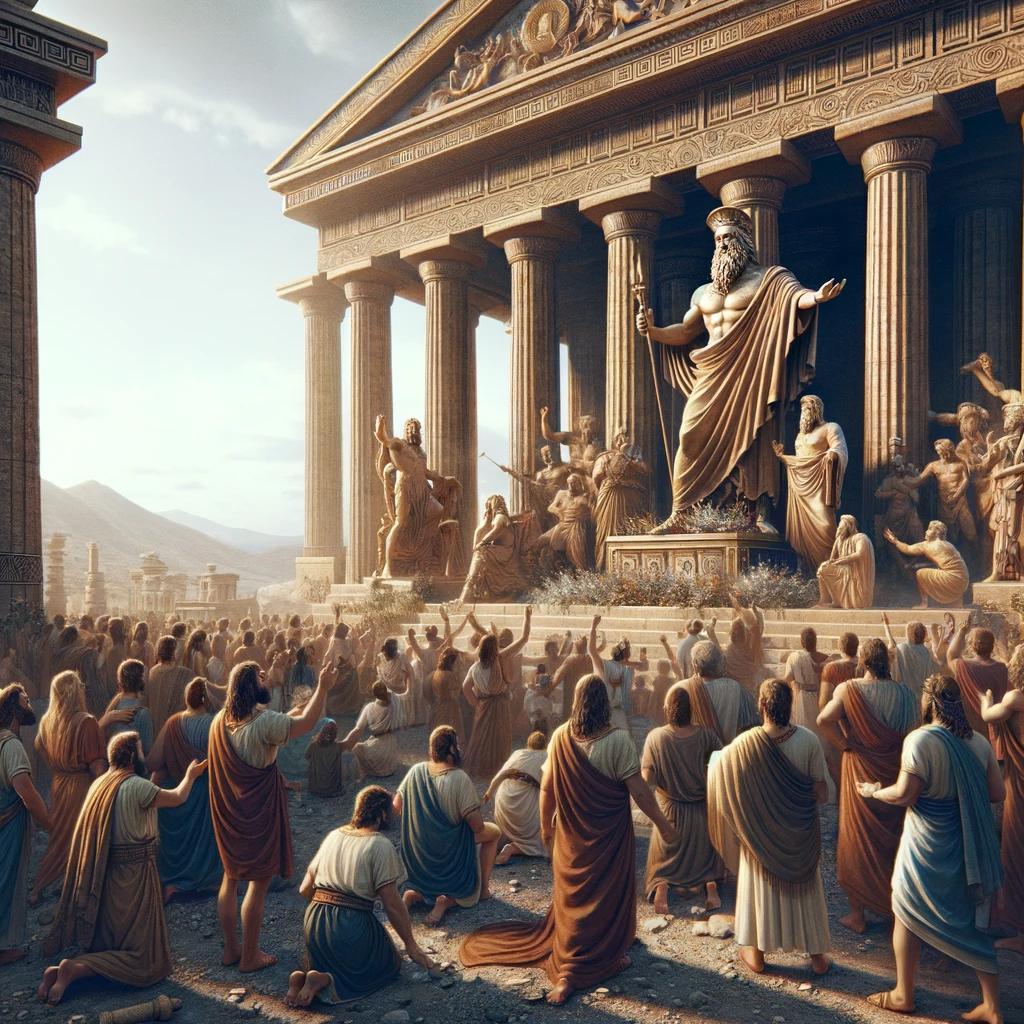
Welcome to the world of Greek mythology, a rich tapestry of gods, goddesses, and epic tales. In this comprehensive article, we will delve into the origins and significance of Greek mythology, explore the diverse pantheon of gods, examine famous myths and legends, and address the question: are Greek mythology gods real? We will also compare Greek mythology with other ancient mythologies, discuss its modern interpretations and impact, explore alternative explanations, and debunk myths and misconceptions.
Join us on this captivating journey through the realms of Greek mythology.
Exploring Greek Mythology: Origins and Significance
Discover the fascinating origins and profound significance of Greek mythology, a rich tapestry of ancient tales and beliefs that shaped the culture of Greece and beyond.
Historical Background of Greek Mythology
Dive into the historical context surrounding Greek mythology, exploring its roots in ancient Greece and its evolution throughout different time periods.
Uncover the influences of the Minoans, Mycenaeans, and other civilizations on the development of Greek myths.
The Role of Greek Gods in Ancient Greek Culture
Unveil the importance of Greek gods in the daily lives and rituals of ancient Greeks. Delve into their roles as guardians, enforcers of justice, and symbols of various aspects of life, such as love, war, and wisdom.
Explore how the worship of gods shaped religious practices and societal norms in ancient Greece.
Influence of Greek Mythology on Western Civilization
Examine the enduring impact of Greek mythology on Western civilization, from its influence on art, literature, and philosophy to its integration into political and educational systems. Explore how concepts and themes from Greek mythology continue to resonate in contemporary culture and the modern collective consciousness.
Understanding the Greek Pantheon: Gods and Goddesses
Greek mythology is rich with a plethora of gods and goddesses who play significant roles in the ancient Greek culture. This section delves into the pantheon of Greek deities, exploring their hierarchy and importance in Greek mythology.
The Twelve Olympians: Main Deities in Greek Mythology
The Twelve Olympians hold the highest status among Greek gods and goddesses. They reside on Mount Olympus and are considered the ruling class of deities. This group includes Zeus, the king of gods, along with prominent figures like Hera, Poseidon, Demeter, Athena, Apollo, Artemis, Ares, Aphrodite, Hephaestus, Hermes, and Dionysus.
Lesser Gods and Goddesses in Greek Mythology
Beyond the Twelve Olympians, Greek mythology is populated with numerous lesser gods and goddesses, each with their own domains and unique abilities.
These divinities, such as Hades, the god of the Underworld, and Hestia, the goddess of hearth and home, play essential roles in various myths and stories. They represent different aspects of life and nature and demonstrate the intricate web of relationships among the gods.
Titans and Primordial Deities in Greek Mythology
Before the reign of the Olympians, the Titans and primordial deities ruled the cosmos. The Titans, children of Uranus and Gaia, held immense power and were eventually overthrown by Zeus and his siblings.
Meanwhile, the primordial deities, including Chaos, Gaia, and Uranus, represent the fundamental forces that shaped the universe. Exploring these ancient entities provides insight into the origins of the Greek gods and their complex genealogy.
Examining the Stories and Legends: Greek Myths and Epics
As we delve into the captivating world of Greek mythology, we encounter a rich tapestry of stories and legends that have endured through the ages. In this section, we will explore the epic poems that form the foundation of Greek mythology, delve into famous myths and their symbolic meanings, and encounter the fascinating creatures that populate Greek folklore.
The Iliad and the Odyssey: Epics of Ancient Greece
At the heart of Greek mythology lie two monumental epic poems: The Iliad and The Odyssey. These timeless works, attributed to the legendary poet Homer, recount the heroic deeds and adventures of ancient Greek heroes and gods.
The Iliad, set during the Trojan War, chronicles the conflicts and personal struggles of heroes such as Achilles and Hector. It explores themes of honor, fate, and the intervention of gods in human affairs, painting a vivid picture of the turbulent world of ancient Greece.
The Odyssey, on the other hand, follows the journey of the resourceful hero Odysseus as he attempts to return home after the Trojan War. Along the way, he faces numerous challenges, encounters mythical creatures, and navigates the whims of the gods.
This epic stands as a testament to the resilience of the human spirit and the power of perseverance.
Famous Greek Myths and their Symbolism
Greek mythology is replete with captivating tales that offer profound insights into the human condition. From the tragic love story of Eros and Psyche to the fateful encounter of Persephone and Hades, these myths are imbued with symbolism and moral lessons.
These myths often serve as allegories for universal human experiences and emotions. They explore themes of love, jealousy, ambition, and the consequences of hubris. Through their timeless narratives, they invite reflection and contemplation on the nature of humanity and the complexities of the human psyche.
Mythological Creatures in Greek Folklore
Within the rich tapestry of Greek mythology, a diverse array of mythical creatures inhabit the enchanted realms. From the majestic winged horse Pegasus to the fearsome Gorgons, these creatures embody the fantastical and unearthly aspects of Greek folklore.
The Cerberus, a three-headed dog guarding the gates of the Underworld, symbolizes the boundary between life and death. The mystical Sphinx poses riddles to those who cross its path, symbolizing the enigmatic nature of knowledge.
These creatures, along with many others, add depth and wonder to the world of Greek mythology.
Addressing the Question: Are Greek Mythology Gods Real?
When delving into the realm of Greek mythology, one cannot help but confront the fundamental question: Are Greek mythology gods real? This intriguing topic has captivated scholars, philosophers, and believers for centuries.
In this section, we will explore various perspectives on the existence of Greek gods, encompassing historical, philosophical, metaphysical, and personal dimensions.
Historical Perspectives and Interpretations
From a historical lens, understanding Greek mythology requires analyzing its origins and its significance in ancient Greek culture. Exploring the historical context surrounding the worship and reverence of Greek gods sheds light on their perceived reality.
We will examine the historical records, ancient texts, and cultural practices that offer insights into the belief system of ancient Greeks.
Philosophical and Metaphysical Considerations
Philosophy has played a vital role in contemplating the nature of divinity and the existence of Greek gods. Examining various philosophical perspectives, such as Plato’s Theory of Forms or Aristotle’s teleological arguments, allows us to explore the metaphysical dimensions of Greek mythology.
We will delve into the philosophical debates surrounding the reality of Greek gods and the influence of mythology on ancient Greek philosophy.
Personal Experiences and Belief in Greek Deities
Throughout history, individuals have claimed personal encounters and experiences with Greek gods, testifying to their existence. These subjective accounts offer a unique perspective on the question at hand. We will explore personal testimonies, anecdotes, and narratives of devotees and individuals who believe in the reality of Greek gods, examining the influence of personal experiences on their beliefs and faith.
Comparing Greek Mythology with Other Ancient Mythologies
When examining Greek mythology in comparison to other ancient mythologies, such as Egyptian and Norse mythologies, both similarities and differences emerge.
Similarities and Differences with Egyptian and Norse Mythologies
Greek mythology shares certain similarities with Egyptian and Norse mythologies.
Across these mythologies, gods and goddesses are depicted as powerful beings with supernatural abilities, governing various aspects of the world.
However, the differences begin to emerge in the specific characteristics and roles assigned to each deity.
Greek gods tend to possess more anthropomorphic qualities, while Egyptian gods often have animal-headed representations. Norse gods, on the other hand, embody a more warrior-like nature, being associated with battles and heroism.
The themes and narratives found within each mythology also exhibit variations. While Greek mythology explores themes of heroism, fate, and human struggles, Egyptian mythology places a greater emphasis on the afterlife and Pharaohs’ divine roles.
Norse mythology, distinctively, revolves around the concept of the world’s cyclical nature and the looming threat of Ragnarök.
Greek Gods and the Influence of the Roman Empire
The influence of Greek mythology extended beyond Greek civilization and permeated into the Roman Empire. The Romans adopted many of the Greek gods and goddesses, giving them Latin names.
However, they often assigned slightly altered characteristics or merged them with their indigenous deities.
For example, Jupiter, the Roman equivalent of Zeus, maintained similar attributes as the Greek deity but was connected to the concept of justice and governance in Roman society.
Similarly, Venus, the Roman counterpart to Aphrodite, took on additional roles relating to fertility and love.
This assimilation of Greek mythology within the Roman Empire helped solidify its influence on Western civilization as a whole.
Roman myths, art, and literature further perpetuated the ideas and narratives of Greek mythology, ensuring its continued impact in Western culture.
Overall, comparing Greek mythology to other ancient mythologies reveals both shared characteristics and distinct differences, showcasing the rich tapestry of human imagination and belief systems throughout history.
Greek Mythology Today: Modern Interpretations and Impact
Greek mythology continues to have a significant impact on contemporary art, literature, popular culture, and even spiritual movements. Its relevance and legacy are evident in various aspects of modern society.
Relevance and Legacy of Greek Mythology in Contemporary Art and Literature
The timeless themes, complex characters, and captivating stories of Greek mythology have served as a constant source of inspiration for artists and writers in the present day. Paintings, sculptures, and literary works often draw upon the rich imagery and symbolism found in ancient Greek myths, infusing them with contemporary interpretations.
Artists and authors find inspiration in mythological figures such as Zeus, Athena, and Aphrodite, exploring their archetypal qualities and exploring themes of power, love, and human nature. These reinterpretations add depth and new perspectives to traditional mythological narratives, connecting ancient stories to contemporary audiences.
Adaptations of Greek Myths in Popular Culture
Greek mythology has found a prominent place in popular culture, permeating films, television shows, video games, and even fashion. The enduring popularity of characters like Hercules, Medusa, and the Minotaur is a testament to the timeless appeal of Greek myths.
Modern adaptations often reimagine these stories in new and exciting ways, adding fresh twists and incorporating them into different genres. From superhero movies with mythological references to fantasy novels that weave Greek mythology into their world-building, these adaptations introduce a new generation to the wonders of the ancient Greek pantheon.
Greek Mythology in Modern Spiritual Movements
Even in the realm of spirituality, Greek mythology holds significance for many individuals seeking a connection with ancient wisdom and a deeper understanding of the human experience. Some spiritual movements incorporate ancient Greek deities into their practices, drawing inspiration from their characteristics and stories.
These modern interpretations often explore the symbolic meaning behind the gods and goddesses, using their qualities as archetypes for personal growth and transformation. By delving into the teachings and myths of Greek mythology, individuals find guidance, inspiration, and a deeper connection to the world around them.
Overall, Greek mythology continues to thrive in the modern world, leaving an indelible mark on art, literature, popular culture, and spirituality. Its enduring relevance and impact speak to the timeless nature of the stories and their ability to resonate with individuals across cultures and generations.
Exploring Alternative Explanations: Psychological and Sociological Perspectives
Mythology as a Psychological Archetype
One fascinating approach to understanding Greek mythology is through psychological analysis. Scholars have proposed that mythological narratives serve as archetypes that reflect and shape human psychology. These collective stories tap into universal and timeless aspects of the human psyche, offering insights into human behavior, motivations, and desires.
By exploring the psychological symbolism and motifs within Greek myths, we can gain a deeper understanding of ourselves and the human experience.
Societal Functions of Mythological Narratives
Another perspective on Greek mythology examines their societal functions. Mythological narratives have historically played a crucial role in shaping cultures and societies. They serve as a means of passing down moral values, explaining the natural world, and establishing cultural identities.
Through these stories, societies transmit societal norms, beliefs, and traditions. Greek mythology provided ancient Greeks with a shared framework of understanding, fostering a sense of unity and coherence within their society.
Moreover, mythological narratives can be analyzed for their social and political implications. They often reflect power dynamics, social hierarchies, and political ideologies prevalent in ancient Greek society. By studying these narratives, we can gain valuable insights into the social structure, governance, and values of the ancient Greeks.
Overall, exploring the psychological and sociological perspectives of Greek mythology offers us a deeper appreciation for the multifaceted nature of these ancient tales. By delving into their psychological symbolism and societal functions, we can unlock new layers of meaning and further comprehend the enduring significance of Greek mythology in human history.
Debunking Myths and Misconceptions: Criticisms of Greek Mythology
Debunking common myths and misconceptions surrounding Greek mythology is crucial in understanding its true nature and significance. By addressing criticisms and analyzing the inconsistencies, contradictions, and misinterpretations, we can shed light on the myths and ensure accurate interpretations.
Inconsistencies and Contradictions in Mythological Accounts
- Unraveling the various accounts and versions of Greek myths reveals inconsistencies and contradictions. Different sources and retellings often present conflicting details, making it challenging to establish a definitive narrative.
- Examining these inconsistencies allows us to understand the evolutionary nature of myths and the cultural, historical, and artistic influences that shaped them.
Female Representation in Greek Mythology
- Critics often highlight the limited roles and stereotypical portrayal of women in Greek mythology.
Female characters are often depicted as passive, seductive, or punished for their actions.
- However, a deeper analysis uncovers the complexity and strength of certain female figures like Athena, Artemis, and Hera, who wield power, intelligence, and assertiveness.
- Exploring the subtext reveals societal norms and patriarchal values prevalent during ancient Greece, influencing the depiction of women in mythology.
Misinterpretations and Misuse of Greek Mythology
- Throughout history, Greek mythology has been misinterpreted and misused to justify certain beliefs, actions, or political ideologies.
- It is important to differentiate between the symbolic nature of myths and the literal interpretations that can lead to distortion.
- Understanding the contextual relevance and original intended meanings of myths helps prevent misconceptions and misappropriation.
.
..

